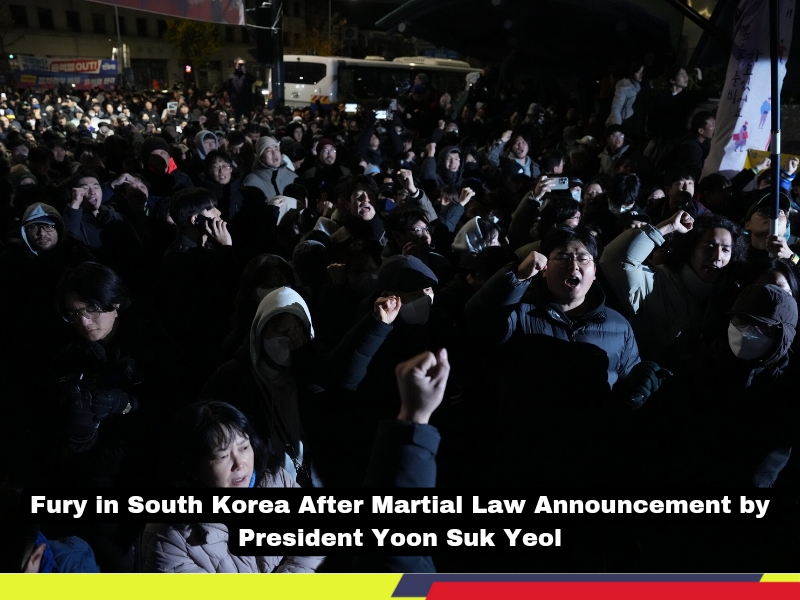South Korea erupted in political turmoil after President Yoon Suk Yeol’s abrupt declaration of martial law on Tuesday night, an extraordinary move that he rescinded within hours amid fierce backlash. The decision, which evoked memories of South Korea’s authoritarian past, has triggered widespread protests, calls for his resignation, and the resignation offers of his top aides.
The Unfolding Crisis
In a surprise televised address, President Yoon announced martial law, citing unspecified threats to national security. The announcement sent shockwaves across the nation, with citizens flooding the streets in protest and political leaders denouncing the decision as undemocratic and dangerous.
The move drew immediate comparisons to South Korea’s postwar authoritarian regimes, which relied on martial law to suppress dissent and curtail freedoms. The backlash was swift and unrelenting, forcing President Yoon to rescind the order within hours.
A Nation Reacts
Protesters in Seoul demanded Yoon’s resignation, accusing him of betraying the principles of democracy. “This is not the leadership we fought for,” one protester shouted during a rally in the capital. Others carried signs reading, “No to Dictatorship!” and “Democracy Under Siege.”
Meanwhile, opposition lawmakers have called for an emergency session to discuss the crisis, with some even hinting at impeachment proceedings. “President Yoon has overstepped his authority and undermined the democratic fabric of our nation,” one lawmaker stated.
Aides Offer Resignation
Adding to the chaos, top aides to President Yoon tendered their resignations on Wednesday morning, signaling internal dissent and acknowledgment of the administration’s misstep. Analysts suggest this may be an attempt to pacify public anger and stabilize the government, but it remains unclear if these measures will suffice.
International Implications
South Korea, a key U.S. ally in Asia, is known for its stable democracy and economic strength. The imposition of martial law, even temporarily, raises questions about political stability in the region. Global leaders have expressed concern over the developments, with calls for South Korea to resolve the crisis through democratic means.
What’s Next?
As lawmakers prepare to meet, the future of President Yoon’s administration hangs in the balance. Public outrage shows no sign of subsiding, and the opposition is poised to leverage this moment to push for significant political changes.
This crisis serves as a stark reminder of South Korea’s past struggles with authoritarianism and the vigilance required to protect its democratic institutions.
Will President Yoon weather this storm, or is this the beginning of a larger political reckoning in South Korea? Only time will tell.




